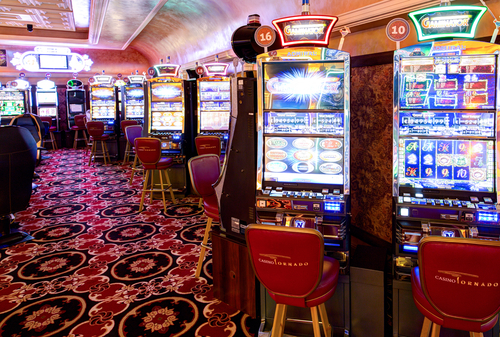
Gambling games have fascinated players over the ages, transforming from simple pastimes to intricate adventures that integrate luck, skill, and amusement. From the early beginnings of gambling in cultures like the ancient societies of Mesopotamia and Rome to the extravagant corridors of contemporary casinos, the history of these games reveals much about our nature and our interaction with luck. As societies have intertwined and technological advancements have occurred, casino games have changed, reflecting shifts in society and innovations in gameplay.
The earliest forms of gambling likely included elementary dice games and betting on the outcomes of sporting events. Over time, these early games grew into better-organized games like card games, roulette, and the multitude slot machines that populate casino floors today. Each era brought its unique rules, design elements, and social relevance. In the current era, casino games persist in evolving with the rise of online platforms, enabling players from all corners of the globe to join in a common experience, further blending the traditional with the modern era.
Ancient Beginnings of Gaming Activities
Gaming games have foundations that reach back to ancient civilizations, where gambling was profoundly entrenched in cultural traditions and cultural customs. The initial known instances of gambling developed in ancient Mesopotamia around three thousand BC, featuring simple die games made from bone material. These primitive activities laid the foundation for more advanced gambling activities, demonstrating human beings’ instinctive desire to pursue wealth and entertainment through chance.
As societies progressed, so did their gambling pursuits. In historic Chinese culture, around two thousand three hundred BC, objects were discovered that were similar to early rudimentary versions of a lottery activity. More structured instances of betting emerged in the ancient Roman Empire, where games of luck were a frequent recreation, often occurring in community events. The Romans developed various wagering activities, which entailed die and table activities, highlighting the pervasive nature of gambling across various economic strata.
With the movement of ages, these primitive activities contributed to the progress of modern casino activities. In the Middle Ages, playing card activities emerged prevalent in Europe, paving the way for the organized gaming establishments we know today. The transition from casual betting to formal gaming in pubs and personal houses marked a significant change in how people interacted with games of luck, leading to the subsequent establishment of casinos as specialized venues for gambling.
The Emergence of Current Gambling Industry
The final 20th century marked a pivotal transition in the field of casino games, propelled by technological progress and shifts in cultural attitudes towards gambling. The emergence of personal computers and the internet revolutionized the way players engaged with their beloved casino games. Virtual casinos emerged, allowing enthusiasts to enjoy classic table games like poker and blackjack from the safety of their own homes. This emerging online environment not only expanded availability to gambling options but also drew in a fresh crowd who found the comfort and diversity tempting.
As online gaming gained popularity, so did advancements in gaming technology. The development of high-quality programs and graphics transformed conventional casino games into engaging adventures. Players could now interact with live live dealers through real-time broadcasts, importing the vibe of physical casinos directly into their living rooms. This blending of live gaming with digital interfaces created a new hybrid model that enhanced the community element of gambling, allowing it possible for people to connect and challenge with others around the world.
Moreover, the rise of mobile gaming dramatically changed the gambling environment. đăng ký Debet With the ubiquitous use of smartphones and touch devices, gamblers can enjoy their preferred casino games anywhere, anytime. Mobile applications offer a wide selection of options tailored for touchscreens, catering to the dynamic daily life of modern users. This accessibility has led to rising involvement in casino games, driving the surge of the gambling sector. As a result, the outlook of the gaming industry continues to develop, adapting to new technologies and shifting player expectations.
The Impact of Technology on Casino Games
Technology’s advancement has greatly changed casino games, enhancing the overall gaming experience for gamblers globally. With the introduction of the internet, online casinos emerged, allowing players to enjoy their favorite games from the safety of their own homes. This change not only made casino games more accessible but also increased the variety of games offered, as online platforms could offer many different versions of traditional games without the physical constraints of physical casinos.
Mobile technology further revolutionized the casino gaming landscape. As smartphones and tablets became widespread, players now have the ability to play casino games anytime and anywhere. This mobility has resulted in the development of dedicated mobile applications and optimized websites that provide seamless gaming experiences. Additionally, advancements such as live dealer games have delivered the genuine feel of a casino into players’ living rooms, connecting between physical and online gaming.
Furthermore, advancements in AI and VR are leading to the next generation of casino games. AI improves game design and player interaction, creating customized experiences based on user behavior and preferences. Meanwhile, virtual reality provides immersive environments where players can interact in a virtual casino environment, making the gaming experience more exciting and lifelike. As technology continues to evolve, the future of casino games looks promising, filled with limitless opportunities for innovation and entertainment.